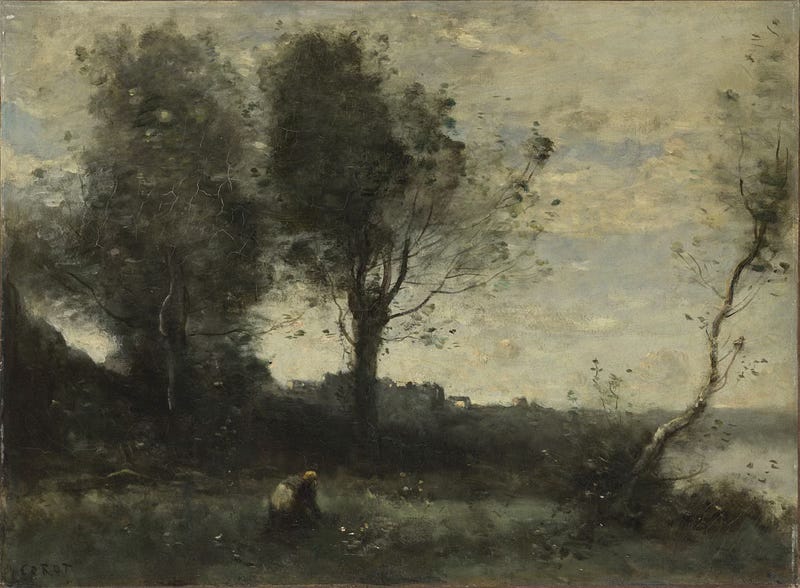What the Work Requires
Reckoning with voice, distance, and the limits of what writing can carry.
I told everyone I’d be writing less. Said the work needed more of me. That was true. But it turns out, not the whole truth.
In May, Christophe Blanc, a winegrower, took his own life. He was found in his vineyard outside Castillon. 59 years old.
I didn’t know him. But I haven’t been able to stop thinking about it. About how many people must be carrying more than they let on. About how quickly it all faded. It hit close, not in friendship, but in form. He was doing the same work. In the same landscape. And one day, he decided he couldn’t keep doing it.
As many here have said: He is not the first. He will not be the last.
Afterward, Neal Martin published a piece calling this Bordeaux’s worst crisis since the 1930s. Others joined in. I read it and felt rage. Not because it was wrong… it wasn’t. But because it was bloodless. As if the real crisis was en primeur pricing and discounts. As if Christophe and those before him are barely a data point.
So I started writing. A takedown. It was good, tight, sharp, righteous. But no matter how I framed it, it felt hollow. I tried over and over to change the frame or tweak the points. Yet all of my writing started to feel that way. What good is a smart paragraph when someone is dead?
I’ve made versions of these arguments before. About broken systems, vanishing relevance, myths that need to die. And I’ve meant it. But this time, I didn’t trust my writing. It felt like I was narrating pain I hadn’t earned.
Because what do I actually know?
I’ve been here long enough to have opinions. Not long enough to carry the weight. I write about fatigue in growers’ eyes… but mine still have the luxury of hope. I talk about collapse, but I haven’t had to pull up vines I can’t afford to save.
At some point, I crossed the line. I thought I was defending the small grower. But I was still using their struggle to tell a story. Still standing outside it, describing.
I said I was just slowing down. That the vineyard needed more of me. And it did. But after Christophe’s death, I realized I wasn’t just slowing, I was stopping. Not just to farm, though that’s what I told myself. I stopped because I couldn’t keep mistaking observation for presence. Or performance for care.
That doesn’t mean I’m done. Just more intent on finding the right way forward.
I still believe in this place, in Francs, hell, even ‘Bordeaux’. Not as a symbol, or a counterpoint to some industry trend. But as a real, complicated, tired, beautiful place. And I still believe in wine as a way of being in it.
But I don’t trust easy conclusions right now. So I’m going back to work, to farming… to not knowing. Still, I do know this much: there are stories here that haven’t been told.
Not just mine: ours. The neighbors who stayed. The ones just getting started. The corners of Bordeaux that never fit the narrative, and never asked to.
Maybe that’s where the writing goes next. Not to explain. Not to impress.
But to witness what’s actually happening.
Because if this place is going to mean something again, someone has to stop looking the other way.





